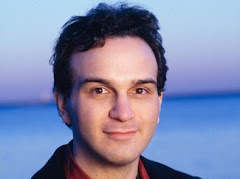RabinFan (RF): Welcome to Malaysia, David. It is your third time to Malaysia. What have you brought to our shores this time?
David Frühwirth (DF): I was here for two series of extended violin masterclasses previously. This time, I am here to perform the Sibelius Violin Concerto with the MPO under the auspices of the Austrian Embassy.
RF: Tell us how the concert was conceived please.
DF: The conductor for the concert conceived the idea of the concert as a 150th birthday celebration to both the composers (Sibelius and Nielsen) who are featured in the concert. They were both born in 1865.
RF: Are you aware of the original version of the Sibelius Violin Concerto? Are there many differences between the original version and revised version that you will play?
DF: Yes, I am aware of the original version and I have even bought an expensive copy of the score. It is fascinating to try to decipher Sibelius’ original thoughts against his revised version. I believe he wrote more music than he really needed for his violin concerto. So, the revised version which is most often played now represents a more concise and succinct representation of his musical thoughts. It is also interesting to see a “Polonaise” rhythmic accompaniment written below a first movement cadenza passage in the original version. Of course, the “Polonaise” idea is now purged from the revised edition’s first movement and makes it appearance in the last movement of the revised edition.
RF: What would be your pictorial description of the concerto?
DF: “Fire and ice” existing together.
RF: Which recordings of the Sibelius Violin Concerto are benchmarks for you?
DF: I like the version by David Oistrakh for its warm tone as well as that of the Israeli violinist, Ivry Gitlis, which has an element of “gypsy” about it. Of course, one also cannot be without Leonidas Kavakos’ recording on BIS, which contains both the original and revised versions of the concerto.
RF: Which are the versions that you do not like?
DF: Anne-Sophie Mutter’s (for its crazy speed for the third movement) and Jascha Heifetz’s (as the Russian violinist does not play the note values as written down by Sibelius).
RF: What else have you brought with you to help you in your performance?
DF: Of course, you are referring to the 1707 Stradivarius (the ex-Brüstlein), which is under a generous and extended loan from the Austrian National Bank. It is a marvellous instrument and I am very fortunate to have it for some years now. I use 2 German bows, which are a Nurnberger and a Grimm.
RF: What else is of musical interest to you?
DF: I like to discover music that is off the beaten track. Music like the Hungarian violinist and composer Jeno Hubay’s Third and Fourth Violin Concertos as well as the Italian composer Leone Sinigaglia’s Violin Concerto of 1917.
RF: Thank you for your time David and all the best for your performances with the MPO here.
Subscribe to:
Post Comments (Atom)















































No comments:
Post a Comment